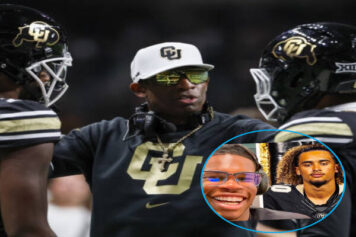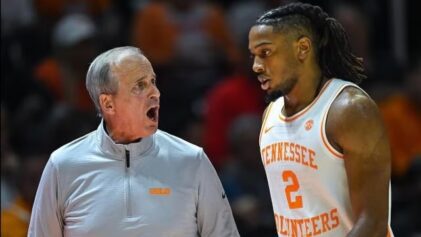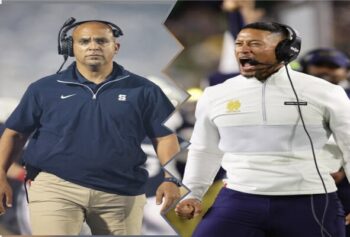Buckle up, NCAA, because they're coming after everything now.
The somewhat-under-the-radar, but outrageously imperative, antitrust lawsuit filed by former NCAA athletes took its most significant stride toward fair revenue sharing to date, when U.S. District Judge Claudia Wilken rejected the NCAA's motion that men's basketball and football players should not be allowed to retroactively add live broadcast revenues into their suit.
The NCAA and its lawyers went after the "procedural grounds" argument. Judge Wilken shut that down. Now, those same lawyers will be required to argue the actual merits of the class-action case on June 20. A jury trial is pending for June 2014.
With live broadcast revenues involved, the antitrust suit filed led by former UCLA All-American forward Ed O'Bannon now has billions of dollars at stake, as rights and fees for live sporting events are worth much more than the rebroadcasted archival footage the former players were initially gunning for. It's been time for Mark Emmert and his organization's lucrative charade to pay up for some time now — unlike their professional counterparts, NCAA athletes do not collectively negotiate a cut of the sizable sums of rights fees TV networks pay to broadcast their talents on the court or field — and that position is just a couple steps away from becoming the sporting world's new reality.
In short, the NCAA's sham of amateurism is treading in dangerous waters. And its profitable economic model is teetering on the ledge of legality.
(The NCAA claimed a "partial victory" in Tuesday's ruling, but that's to be expected, right?)
By failing to treat its men's basketball and football players (athletes in revenue-generating sports) like employees, the NCAA has reached greater and greater economic heights on the vastly under-compensated talents of 18 to 22-year-olds for decades. But one decision in the O'Bannon case could not only rightfully distribute revenue to the labor force the NCAA profits off of, but could also open the flood gates for other commercial and financial restrictions that handcuff collegiate athletes.
Why can't a prominent men's basketball player appear in a commercial?
Why is, say, Texas A&M allowed to keep 100 percent of the profits off all Johnny Manziel merchandise it sells?
These are just a few of the questions facing the NCAA that could bubble to the surface with a favorable ruling in the O'Bannon case. Granted, that ruling is still far off and the NCAA has held up well in the courts previously. But really, there's a legitimate reason the lawsuit has garnered so much support, with even Bill Russell and Oscar Robertson jumping on board as plaintiffs.
Simply put: It's time.
It's time something happened here.
It's time the NCAA paid fair market value for its labor.
It's time someone like Judge Claudia Wilken stepped in and made the right decision.
O'Bannon and the thousands he and his team represent did not win their case by any means on Tuesday, but that potential decision is still up for grabs — and that's a win in its own right.



